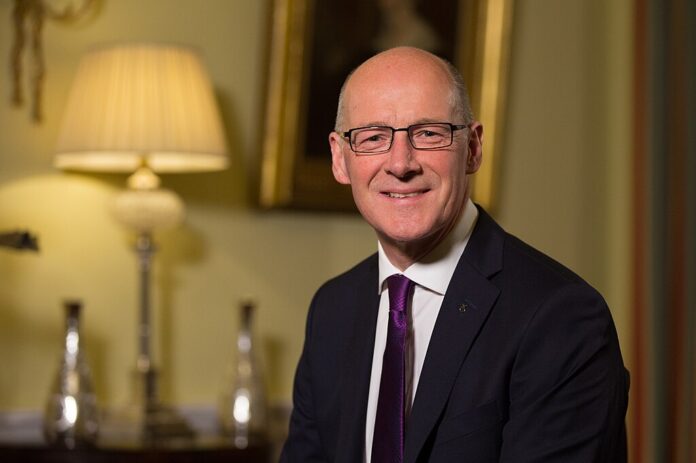McCormick withdraws from the race, endorsing Swinney as the sole candidate for SNP leader and first minister of Scotland
In a significant turn of events within the Scottish National Party (SNP), activist Graeme McCormick has decided to abandon his leadership bid, endorsing John Swinney, the former deputy first minister of Scotland, as the next SNP leader and Scotland’s First Minister. This decision comes just before the nomination deadline, leaving Swinney as the only official candidate.
Graeme McCormick, known for his previous attempt to become SNP president in 2023, had initially indicated his capability to secure the necessary 100 signatures from 20 different party branches required for a leadership challenge. Despite reaching this threshold, McCormick chose to support Swinney following a detailed and promising discussion between the two.
Explaining his decision, McCormick highlighted their fruitful conversation about the future challenges and opportunities facing the SNP and Scotland. He expressed confidence in Swinney’s leadership qualities and his commitment to achieving Scottish independence. McCormick’s endorsement of Swinney signals a unifying moment for the party, which could be crucial ahead of the general election.
Embed from Getty ImagesJohn Swinney, now standing unopposed, has positioned himself as a unifying candidate who aims to restore public trust in the SNP after a series of internal challenges and a dip in voter support. His leadership bid comes at a critical time, as recent polls suggest a significant drop in SNP support, with potential losses in the upcoming Westminster elections.
The party, which has been navigating through turbulent times, faces the urgent task of rebuilding and reinvigorating its base. Swinney’s call for a swift conclusion to the leadership contest reflects his strategic focus on strengthening the party’s readiness for future electoral challenges rather than prolonging internal divisions.
McCormick’s supporters, who had previously criticized the SNP’s cautious approach to a second independence referendum and advocated for more decisive action, now see Swinney’s candidature as a pragmatic choice that could lead to revitalized leadership and strategy.
As the nomination period closes, the SNP appears to have avoided a potentially divisive and bruising leadership battle. However, Swinney’s upcoming tasks as leader will involve not only uniting the party but also addressing the broader political challenges reflected in declining poll numbers and preparing for a vigorous campaign in the general election.
Analysis:
Politically, McCormick’s withdrawal and endorsement of Swinney could stabilize the SNP’s leadership dynamics, focusing energies on the upcoming electoral battles rather than internal conflicts. Socially and psychologically, this move might restore some confidence among party members and activists, who are looking for strong leadership to navigate through current political and economic uncertainties.
Sociologically, the endorsement reflects broader party dynamics where unity is often seen as essential for electoral success. Swinney’s challenge will be to harness this unity and turn it into a compelling campaign narrative that can address the concerns of Scottish voters, especially those disillusioned by recent political developments.
The endorsement also highlights the strategic considerations within party politics, where sometimes potential leaders opt to support others for the greater good of the party and its goals. This scenario underscores the importance of leadership decisions that resonate not only with party members but also with the wider electorate.
